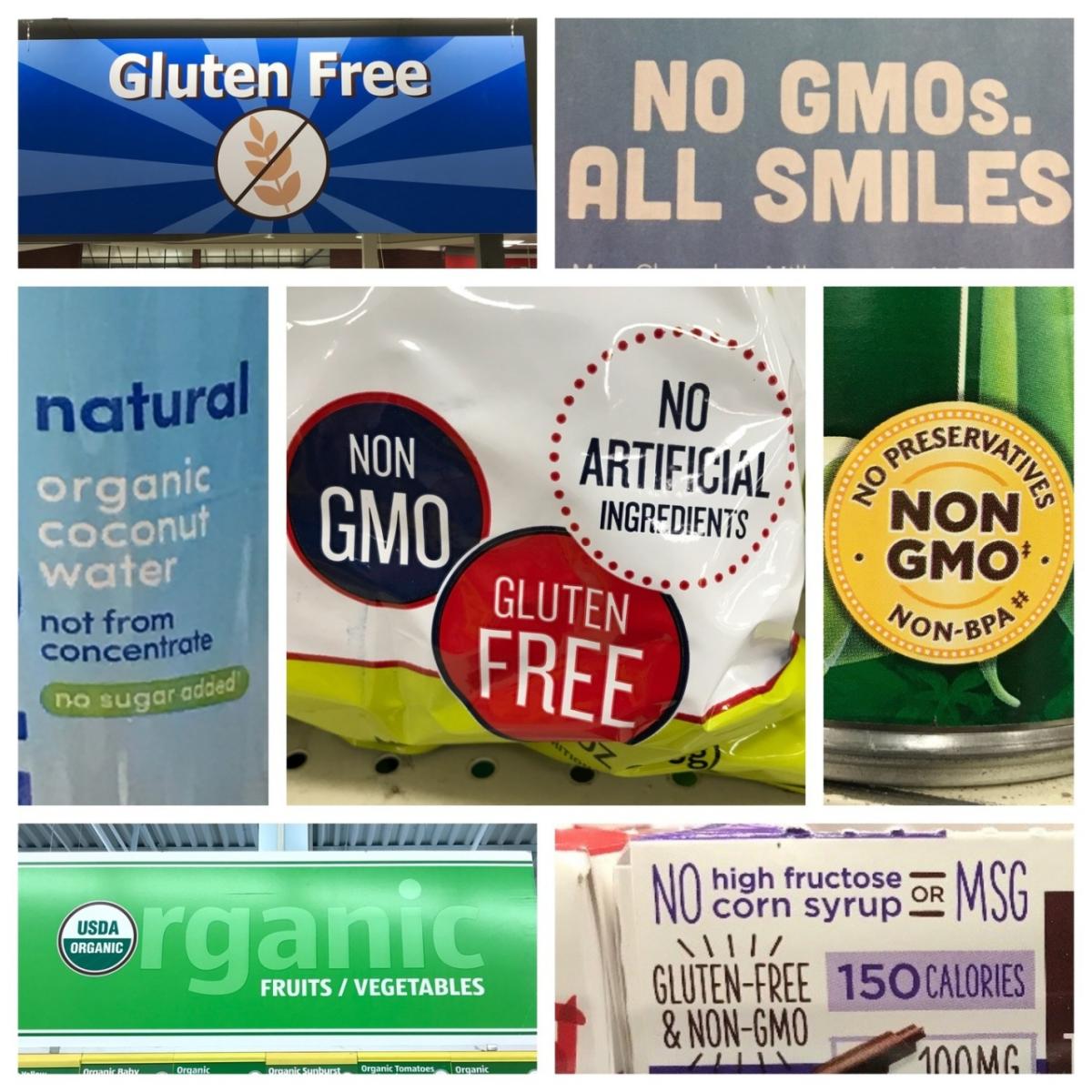No More Shoes: A Different Perspective on Free-From Food Labeling
Written By Rob Fraley
No More Shoes: A Different Perspective on Free-From Food Labeling
Imagine that some enterprising souls in the U.S. decide one day that shoes are bad, and begin drumming up support and waging communications campaigns to convince the country to go “Shoe free.”
This is, of course, a ridiculous concept. We all know that shoes are a beneficial “tool” that make our lives better. They keep our feet warm in the winter and dry in the rain. They keep us from burning our feet on hot pavement or stepping on sharp objects like broken glass. They prevent the rampant spread of the dreaded foot fungus.
Now…also imagine that the people at the core of the “Shoe-free” movement have invented various “shoe alternatives” – special socks, “natural” foot sealant, etc. – and that anyone involved in the manufacturing or retail of these products will reap financial benefits from proclaiming the “anti-shoe” message. Selling new products to an untapped market of 330 million people can be a powerful motivator.
Before long, we start seeing stories in our social media feeds about how thousands of people are being hurt by shoes. And not only that, but how shoes are also hurting the environment.
- There are personal anecdotes (although, without any scientific evidence to support them): “My aunt wore shoes for 63 years and now she has foot cancer.”
- There are celebrity testimonials featured on magazine covers: “I never wear shoes because I care about my body and I care about the earth. Barefoot living makes me healthier and happier.”
- There are conspiracy theories: “The shoe companies have brainwashed us into thinking we need shoes so they can take our money and then take over the world. And the government is in on it!”
Then the movement starts to catch on, and before long we are seeing signs and packaging labels plastered all over the stores we shop in and on the products we buy (even if they have nothing to do with shoes): “No shoes preferred”; “Shoe-free zone”; “Manufactured in a shoe-free facility.” Toy manufacturers start making public statements about why they’ve decided to sell “Shoe-free” dolls and action figures.
As irrational as it may seem, if this went on long enough and Americans continued to be bombarded by these messages at every turn, eventually I think some (if not many) would start to accept the idea that shoes are bad. Shoes are to be avoided. It is better to pay more for shoe alternatives for the health of our children, and for the good of humanity.
The point of this story? To provide a relatable illustration of what the scientific and agricultural communities have observed with the “Free-From Label Movement” – particularly with the labeling of foods produced with genetically modified crops, or “GMOs.” We now see “Non-GMO” signs and labels everywhere we go – even on products for which there is no GMO alternative (there are only ten GMO crops commercially approved in the U.S.).
In fact, we have seen all the “shoe example” tactics listed above to package and market food (and even non-food) products using a variety of buzzwords: Organic, gluten-free, chemical-free, all-natural, etc. – typically at significantly higher prices than non-labeled product alternatives. Here are just a few examples of messages that American consumers are bombarded with at every turn:
Some of the labels we see border on absurdity, such as gluten-free water or non-GMO salt(since salt is a mineral, not a living organism, and therefore has no genes). Or, as most scientists would be quick to point out, everything you eat is made of chemicals and “natural” does not imply safe or healthy – which renders those labels basically meaningless.
In 2016, the U.S. Congress passed a bill mandating disclosure on foods containing GMO ingredients. The USDA has clearly stated that this is a marketing standard and that there is no safety concern with bioengineered crops, but to avoid an expensive and potentially confusing patchwork of state laws, it has been working to develop uniform rules for what the disclosure should include. It released a proposal in May that included some friendly-looking symbols that move away from the term “GMO” and use “BE” instead, which stands for bioengineered but means the same thing. Now the USDA is reviewing more than 14,000 comments received during the public comment period, which ended in early July, before issuing its final regulations.
Whatever the outcome, it’s hard to get past the frustration that American consumers are being misled – not by the government, which is simply trying to bring order to chaos, but by the groups pushing to bombard consumers with unnecessary food labels. In the case of GMOs:
- We know that science has proven that GMOs are safe. GMOs are the most tested and researched ag products in history!
- We know that GMOs reduce the need for pesticide applications, and reduce agriculture’s overall impact on the environment.
- We know that GMOs not only help Western farmers grow more crops on less land, they also have the potential to flourish and providing lifesaving nutrients to starving people in parts of the world where most crops can’t grow well due to drought, pests, or diseases – which makes them much more needed and beneficial than shoes.
But while the benefits of shoes are evident to those who physically use them each day, marketers have found it easy to make GMOs sound scary to consumers who have no connection to farming or science.
And just as in the shoe example, people at the core of the non-GMO, organic, and natural food movements are profiting greatly from consumer acceptance of these messages. There are now more than 43,000 Non-GMO Project Verified products generating annual sales of $22 billion. Organic sales in the U.S. hit $49.4 billion in 2017, up 6.4% from 2016. And over the past decade, growth in traditional supermarkets and drugstores has been flat, while natural food supermarkets are on the rise.
It is purely common sense to conclude that if consumers are constantly seeing and hearing products touted as “organic” or “non-GMO,” they will infer that it means those products are somehow better – or, going a step further, that products that aren’t labeled as such are somehow worse – less safe, less nutritious, less sustainably produced. And that is simply not true. I applaud the companies that are willing to resist the pressure to follow the crowd (and the money) to add non-GMO labels to food packaging, and have instead chosen to take a stand for science.
Yes, I agree that consumers have a right to transparent labels. But that transparency only helps them make more informed decisions if they have an accurate understanding of what the label terminology means. If at the end of the day, free-from labels cause people to make decisions based on underlying misinformation rather than scientific facts, it makes one wonder…where is the reason in this movement?
Meanwhile, smallholder farmers in Africa are begging for drought-tolerant and insect-resistant GMO crops so that they can feed their families – a basic human right that we take for granted every time we walk into a well-stocked grocery store.
There’s too much at stake to let label confusion get in the way of scientific advances and feeding the world. GMOs are safe. Organic isn’t any healthier. Let’s stop the fear mongering and celebrate that we are privileged to enjoy the most abundant, affordable and nutritious food on the planet.



